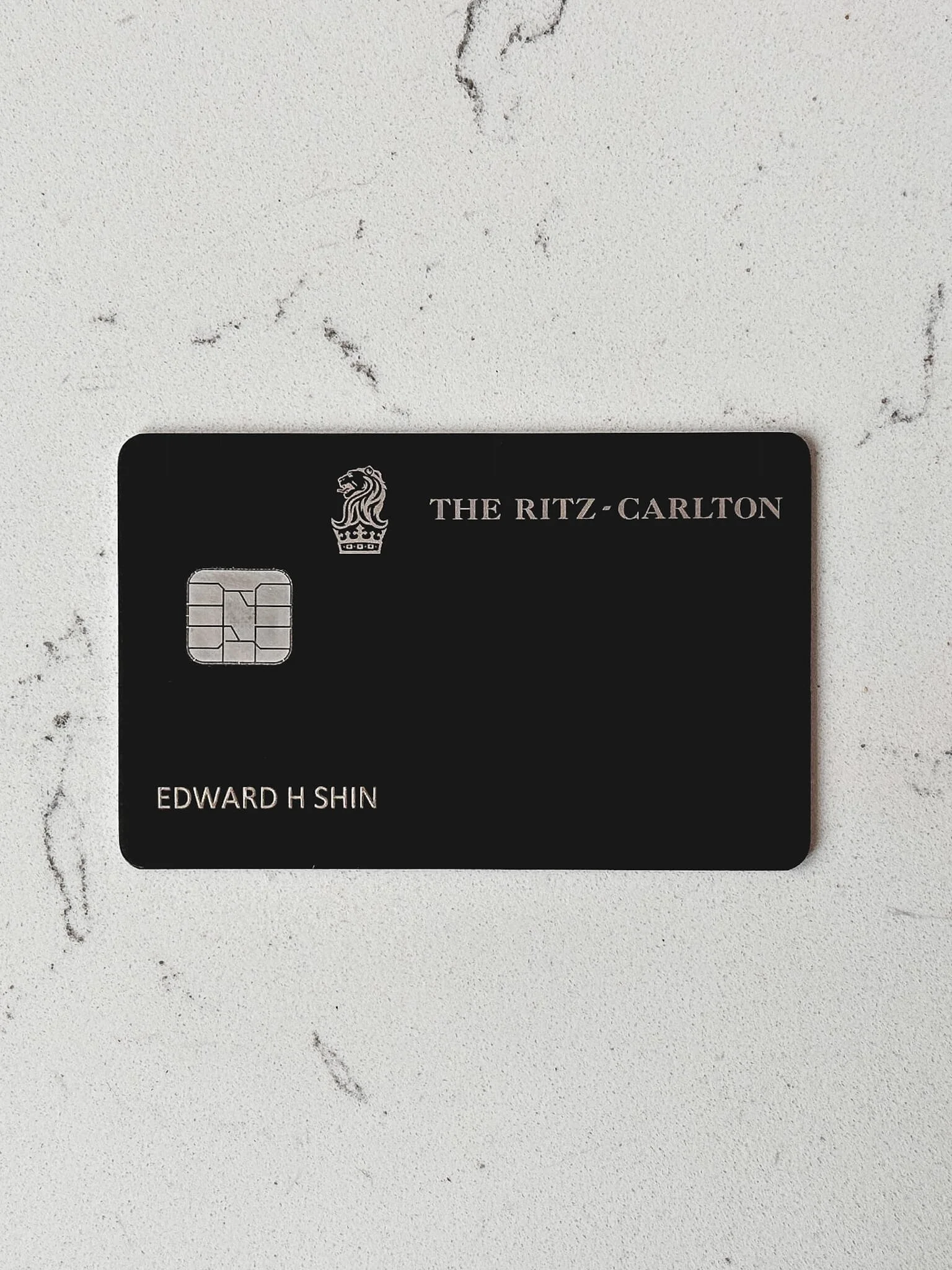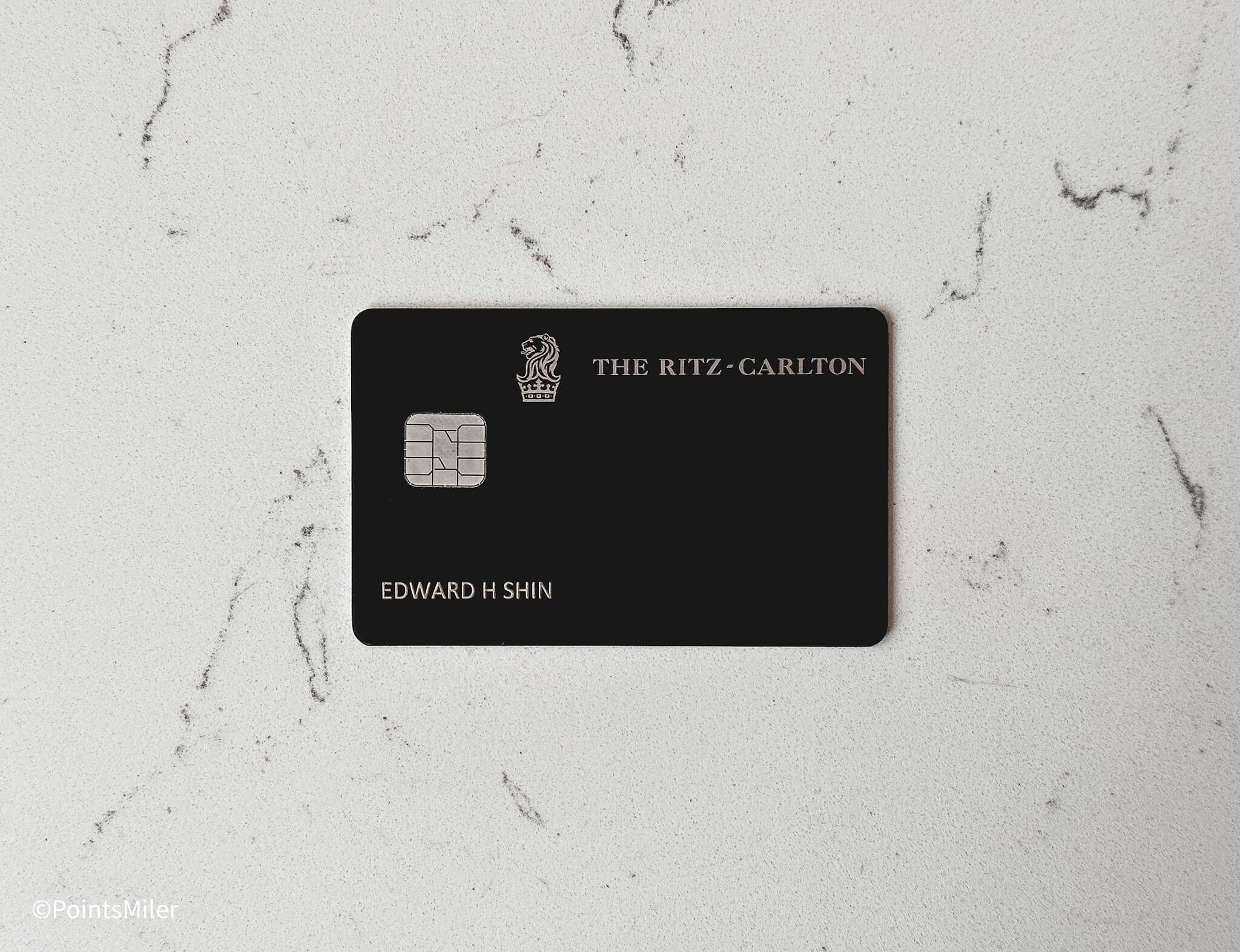Credit Card Review: Chase Ritz-Carlton Card
The luxury travel credit card industry has reached a saturation point. As popularity grew, issuers competed by piling on extra benefits. However, an unfortunate side effect of these elevated perks is the inevitable rise in annual fees. Nowadays, most top-tier travel credit cards come with a hefty price tag of over $500 per year. Take, for instance, the Chase Sapphire Reserve card, which has an annual fee of $550, or the AMEX Platinum card, with a whopping annual fee of $695. Citi's AAdvantage Executive World Elite credit card is no different, with an annual fee of $650. Similarly, the AMEX Marriott Bonvoy Brilliant card also sets you back $650 each year. You get the idea. However, the Chase Ritz-Carlton card is a luxury travel credit card that has a relatively affordable annual fee of $450 while providing amazing benefits to cardholders. Although it is a discontinued product, you can still get your hand on the card. Let’s learn about the Chase Ritz-Carlton card and why it is one of the best travel credit cards.
The Chase Ritz-Carlton card is a luxury travel credit card that will stay in my wallet for the foreseeable future due to its remarkable value proposition.
How to Get the Discontinued Chase Ritz-Carlton Credit Card
Since the Chase Ritz-Carlton card is officially discontinued and is not open for new applicants, the only way to obtain the card is to product change an existing Chase Marriott Bonvoy credit card. Keep in mind, Chase only allows a family of cards to be converted, meaning that you cannot product-change a United Airlines credit card to a Marriott Bonvoy card. As of now, there are three Marriott Bonvoy credit cards by Chase, and they are:
Marriott Bonvoy Boundless
Marriott Bonvoy Bold
Marriott Bonvoy Bountiful
To meet the requirement, it is necessary to keep the account open for a minimum of 12 months once you possess one of the aforementioned cards. The most convenient approach to monitor the timeline is to wait for the annual fee to be charged. Once the annual fee has been posted to your account, you'll know that the relationship has been ongoing for at least a year. At that point, you can contact Chase and request an upgrade to the prestigious Ritz-Carlton card.
I product-changed from my Chase Marriott Bonvoy Boundless card after owning the card for a year.
Before contacting Chase, it's important to ensure that you have a line of credit of at least $10,000 on your existing Marriott Bonvoy credit card. This is because the Chase Ritz-Carlton credit card is a Visa Infinite card, which requires a minimum credit line of $10,000. Taking this step will set you up for a smooth process and ensure eligibility for the card. If your current Marriott Bonvoy card does not have a sufficient credit limit, you have the option of allocating limits from your other existing Chase credit cards. Once a Chase representative executes the allocation process, the new limit should then be reflected.
Annual Fee & Benefits
The annual fee for the card is $450, which is relatively lower compared to other luxury travel cards. For instance, the AMEX Platinum card comes with a $695 yearly fee, while the AMEX Marriott Bonvoy Brilliant card will cost you $650 every year. Undoubtedly, these premium cards offer benefits that justify their annual fees. However, the Chase Ritz-Carlton card provides remarkable value through its generous benefits, all at a modest $450 annual fee. It's quite surprising how much value you can get at such an affordable price. The Chase Ritz-Carlton card earns 6X per dollar spent on Marriott hotels when booked directly through Marriott, 3X per dollar spent on dining, car rentals, and airline purchases, and 2X per dollar spent on all other purchases.
$300 Airline Incidental Credits
The Chase Ritz-Carlton card grants cardholders a $300 airline incidental credit each calendar year. This implies that during your initial year of owning the card, you can essentially receive the credit twice—once before December ends and again in the subsequent year. Nevertheless, it's important to note that airline incidental credits have specific limitations and only cover certain categories of fees. For instance, you cannot apply the airline incidental credit toward the following charges:
Airline tickets
Airline gift cards
Award tickets
Mileage points transfer or purchase fees
The airline incidental credit is eligible when applied toward the following charges:
Airline lounge day pass and yearly lounge membership (e.g. Delta Sky Club)
Baggage fees
Seat upgrades
In-flight entertainment and internet
In-flight meals and beverages
One downside of the airline incidental credit tied to the Chase Ritz-Carlton card is that the fee reimbursement isn't automatic. To get the fee reimbursed, you'll need to either call the number on your card or send a secure message through Chase. This human interaction gives some flexibility to what charges are deemed eligible, and you might even receive credit for charges that are typically ineligible for reimbursement. Despite the restrictions and hurdles, the card's $300 airline incidental credit is remarkably generous considering its $450 annual cost.
The $300 airline incidental credit applies to seat upgrades. Photo by Delta.
85,000-Point Marriott Bonvoy Free Night Award
The annual Free Night Award for the Chase Ritz-Carlton card used to cover up to 50,000 points, but it has now been increased to a maximum of 85,000 points. The beauty of these Free Night Awards is the flexibility to top off by adding up to 15,000 points if you have some to spare, meaning you can even book a property that would typically cost 100,000 points per night. Considering that the significantly more expensive AMEX Marriott Bonvoy Brilliant card offers the same Free Night Award, it is a fantastic benefit for cardholders of the Chase Ritz-Carlton card.
How about a night at The London EDITION? Photo by Marriott.
Uncapped Priority Pass Membership
Priority Pass membership has become a staple commodity among travel credit cards, but I value Chase’s Priority Pass Select membership much more than others. Not only can you have access to Priority Pass lounges, but also you can receive restaurant credits at select airport restaurants, between $28 - $30 towards food and drinks per person (meaning that if you bring a guest, each person gets separate credit towards drinks and food). Restaurant policies vary for how many additional guests can benefit from your membership pass, so be sure to check beforehand. The food was pretty mediocre, but the credit was enough to cover a burger and two beers. Airport restaurants are usually overpriced, and this benefit can be quite helpful if you are at the right airport.
When you have a layover in Houston, you can use your Priority Pass at Cadillac Mexican Kitchen & Tequila Bar. Photo by Priority Pass.
Free Authorized Users
More often than not, you will need to pay to add authorized users to your premium travel credit cards. For instance, if you want to add authorized users to your AMEX Platinum card, you will be required to pay $175 annually to add up to three authorized users. The Chase Sapphire Reserve requires the primary cardholder to pay $75 per authorized user. That is not the case for the Chase Ritz-Carlton card, and you can add authorized users to your card for $0. One of the great advantages is that authorized users also benefit from the Priority Pass. They can relish the same level of restaurant benefits as the primary user.
Reimbursed Global Entry or TSA PreCheck Application Fees
Cardmembers can get up to $100 in statement credit when the Chase Ritz-Carlton Card is used to pay for the application. I would highly suggest using this benefit for a Global Entry application since it includes TSA PreCheck. Global Entry can save you hours of waiting time in line over a year if you often travel internationally. You can use this credit every 4 years and apply it towards a friend or family member if your own Global Entry membership is covered by another card.
It’s generally a better idea to apply for Global Entry since it comes with TSA PreCheck.
Travel Coverage
The Chase Ritz-Carlton card offers exceptional travel coverage that rivals the benefits provided by the Chase Sapphire Reserve card or the Capital One Venture X card. One of its standout features is its primary rental car insurance, which ensures that any accidents that occur while driving a rental car will be processed through the card's auto insurance first, before affecting your personal auto insurance. This enables you to confidently decline the rental car company's auto insurance coverage and enjoy peace of mind during your travels.
Utilizing primary rental car insurance can help cardholders save money while ensuring the same level of coverage. Photo by Obi - @pixel7propix on Unsplash.
If your trip is delayed by six hours or more, you could be eligible for up to $500 per ticket as reimbursement for expenses incurred during the delay. This includes claiming expenses such as meals and lodging accommodations. It's important to note that this coverage extends not only to you but also to your immediate family members and spouse on the same reservation. While trip delay insurance typically covers delays of 12 hours or more, the coverage for a 6-hour delay is exceptionally generous.
The Chase Ritz-Carlton card provides better coverage for delays, offering protection for delays of 6 hours or longer, which is more generous than the standard 12-hour coverage offered by most other issuers. Photo by Dennis Gecaj on Unsplash.
The same six-hour rule also applies to delayed baggage. If your checked baggage is lost or delayed for more than six hours, you are eligible to receive compensation of up to $100 per day for a maximum of five days. This will cover necessary purchases such as clothing and toiletries. In the unfortunate event that the airline completely loses your baggage, you can claim up to $3,000 in compensation.
Summary
The Chase Ritz-Carlton card is a discontinued luxury travel credit card that you can upgrade from existing Chase Marriott Bonvoy credit cards. While it carries a $450 annual fee, its outstanding benefits more than justify the cost. Notably, the card provides a $300 airline incidental credit every calendar year, an annual 85,000-point Marriott Bonvoy Free Night Award, and an enhanced Priority Pass membership in partnership with numerous airport restaurants. Furthermore, the travel coverage offered by this card ranked among the best in the industry, and the option to add authorized users for free allowed for sharing of the travel coverage perks, including the Priority Pass membership. Despite potential hurdles in obtaining the Chase Ritz-Carlton card, it remains one of the most cost-effective premium travel credit cards available today.















